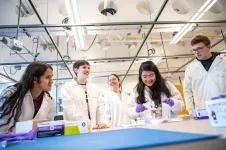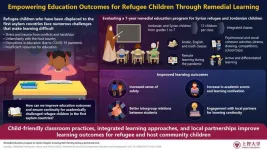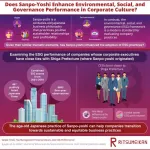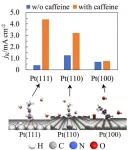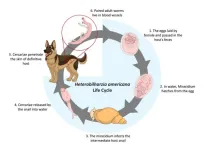(Press-News.org) Key Takeaways
There was a 15-20% decrease in newly diagnosed breast cancer cases reported to American College of Surgeons Commission on Cancer sites in 2020 compared to 2019.
These study results have implications for how physicians and policymakers can address issues that may arise due to the diagnostic delays that occurred during the COVID-19 pandemic, the authors said.
CHICAGO: Several studies have described the distinct ways the COVID-19 pandemic adversely impacted cancer care, but less is known about the specific ways the pandemic disrupted breast cancer, the most common non-skin cancer diagnosed in women. Research evaluating data from the American College of Surgeons (ACS) National Cancer Database (NCDB) shows that breast cancer was not immune to pandemic-related stressors, with researchers finding that there was a 15-20% decrease in newly diagnosed breast cancer cases reported to Commission on Cancer (CoC) sites in 2020 compared to 2019.
The results, published in Cancer Medicine, describe one of the first large-scale studies to examine the rates of breast cancer diagnoses during the first year of the COVID-19 pandemic; the results also have implications for how physicians and policymakers can address issues that may arise due to the diagnostic delays that occurred during the pandemic, the authors said.
“I think what’s notable is that the drop in breast cancer diagnoses was consistent across all regions of the country, all age groups, and all different races. It was not an isolated event,” said Katharine Yao, MD, FACS, senior author of the study and Chair of the ACS National Accreditation Program for Breast Centers (NAPBC). “The results of this study tell us that during the pandemic, patients weren’t coming in for evaluation of breast findings and for screening mammograms, and that’s very likely why we saw fewer cancers diagnosed in 2020.”
The NCDB, a clinical oncology database jointly operated by the CoC and American Cancer Society, captures approximately 74% of all newly diagnosed cancers in the U.S. Researchers also used U.S. Census data to determine the number of women and men in the general population over the study period. In total, they analyzed data from 1,499,806 patients with stage 0-IV breast cancer across 1,328 CoC sites.
Other Key Study Findings
While the researchers found that the decrease was seen for both women and men and across nearly all patient age groups, races, and ethnicities, the decrease was most dramatic for females aged 50–59 years (16.1% decrease) and 60–69 years (17.4% decrease). The authors noted two possible reasons for why these age groups were most vulnerable during the pandemic: Patients older than 50, including the 60-69 age group, are more likely to be affected by breast cancer compared to younger age groups; additionally, older women are more likely to be screened with mammograms, and therefore may have been more susceptible to screening delays that occurred during the pandemic.
Hispanic women experienced the sharpest decline from 2019 to 2020 among all races and ethnicities, with an 18.4% decrease. This is consistent with other disparities that Hispanic individuals faced during the pandemic, as research has shown that Hispanic people had higher rates of COVID-19 infection as well as mortality related to COVID-19, the authors noted.
Women receiving care in the Western U.S. and mid-Atlantic regions experienced the largest declines in 2020, which may reflect the large COVID-19 outbreaks in New York and other mid-Atlantic states, the state of Washington, and California during the study period.
Though representing less than 1% of breast cancer cases in 2020, the number of breast cancer diagnoses in men declined sharply – by 20% – in 2020 compared to 2019.
The reasons behind these decreases are likely multifactorial, reflecting screening restrictions that occurred in the early months of the pandemic when stay-at-home orders were implemented in several states, as well as the fear of exposure that may have caused some patients to delay care for breast cancer symptoms, the authors noted. Other factors, such as unemployment, may have kept some people away from receiving care even after pandemic restrictions were lifted.
Future Implications for Breast Cancer Care
“There are so many unknowns. For example, in the next 5 to 10 years, are we going to see worse survival rates or higher recurrence rates because patients weren’t getting their screening mammograms or coming in to be evaluated?” said Dr. Yao, a breast surgeon who also serves as vice chair of research within the department of surgery at NorthShore University in Evanston, Illinois. “We just don’t know.”
Future research is needed to determine when case numbers will return to baseline levels and the consequences of delayed diagnosis and care, particularly among patients and geographic areas that were most severely affected by the pandemic.
“I think it’s important to have this data as a baseline, so that we can look at future data and compare it to what happened in the past,” Dr. Yao said. “To know that, we need to know where we started. And that’s what this study really presents – a starting point. Looking at years after 2020, we’ll gain a more complete picture and can start to see where the trends lie.”
Disclosures: The authors report no conflicts of interest, including relevant financial interests, activities, relationships, or affiliations.
Funding: This research received no specific grant from any funding agency in the public, commercial, or not-for-profit sectors.
Citation: Fefferman M, Kuchta K, Wang C. Rates of newly diagnosed breast cancer at Commission on Cancer facilities during the early phase of the COVID-19 pandemic. Cancer Medicine, 2023. DOI: 10.1002/cam4.6874
# # #
About the American College of Surgeons
The American College of Surgeons (ACS) is a scientific and educational organization of surgeons that was founded in 1913 to raise the standards of surgical practice and improve the quality of care for all surgical patients. The ACS is dedicated to the ethical and competent practice of surgery. Its achievements have significantly influenced the course of scientific surgery in America and have established it as an important advocate for all surgical patients. The ACS has approximately 90,000 members and is the largest organization of surgeons in the world. “FACS” designates that a surgeon is a Fellow of the ACS.
Follow the ACS on social media: X | Instagram | YouTube | LinkedIn | Facebook
END
Breast cancer diagnoses plummeted during first year of pandemic
Research, which used the National Cancer Database, is one of the first large-scale studies to examine breast cancer rates during the early months of the COVID-19 pandemic
2024-03-14
ELSE PRESS RELEASES FROM THIS DATE:
Demystifying nano-neuro interactions
2024-03-14
By Shawn Ballard
Nanomaterials already play a vital role in enhancing the performance of everyday products from electronics to cosmetics to food packaging. But, beyond their usefulness in making images sharper and products more stable, researchers in the McKelvey School of Engineering at Washington University in St. Louis have shown nanoparticles may also be an essential tool in advancing our understanding of the brain and opening new avenues for treating neurological disorders such as Parkinson's disease and epilepsy.
Srikanth Singamaneni, the Lilyan & ...
Common viruses trigger most cases of intussusception in children
2024-03-14
Viral infections trigger more cases of intussusception, the common cause of bowel blockages in young children, than previously thought, according to a new study.
The research, led by Murdoch Children’s Research Institute (MCRI) and published in Clinical Infectious Diseases, found during the COVID-19 lockdowns hospital admissions for intussusception, a medical emergency involving obstruction of the intestine, among young children significantly decreased.
For the study, 12 years of data was analysed across Victoria, NSW and Queensland. ...
New multimillion dollar research facility set to unlock secrets of quantum materials
2024-03-14
Material scientists from the University of British Columbia Stewart Blusson Quantum Matter Institute (Blusson QMI) will lead the development of a multi-million world-class crystal growth facility thanks to $5.8 million in investments by the Canada Foundation for Innovation (CFI) and the B.C. Knowledge Development Fund (BCKDF) announced today.
Blusson QMI Scientific Director Andrea Damascelli said the investment will strengthen Canada’s position as a leader in quantum research and technology.
“The investment enables the establishment of state-of-the-art research infrastructure that is unique in Canada and will deliver exceptional impact for quantum material design, technology ...
Improving education and human security for vulnerable refugee children
2024-03-14
‘Access to education’ is recognized as a fundamental human right and is listed as one of the United Nations’ sustainable development goals to achieve by 2030. Quality education unlocks opportunities and gives individuals the freedom to make livelihood choices and shape their own destinies. However, an increasing number of refugee children are deprived of this fundamental right. According to the UNHCR, between 2010 and 2022, the number of child refugees doubled from 20.6 million to about 43.3 million.
An overwhelming majority of these refugees are displaced to neighboring countries that are short on resources and lack adequate educational infrastructure ...
The timeless wisdom of Sanpo-yoshi for present day businesses
2024-03-14
There is a growing emphasis for corporations to consider their impact on the environment, society, and its stakeholders. Broadly falling under environmental, social and governance or ESG, this involves practices such as using sustainably sourced materials, reducing carbon emissions, improving labor practices, fostering positive community relations, and promoting ethical corporate behavior, including efforts against anti-competitive practices and corruption.
The first mention of ESG appears in a 2004 UN report ...
Supercharging fuel cells with caffeine
2024-03-14
With global goals set on transitioning away from fossil fuels, fuel cells stand out as a promising carbon-free energy source. Comprising an anode and a cathode separated by an electrolyte, fuel cells convert the chemical energy of fuel directly into electricity. The anode receives the fuel, while an oxidant, typically oxygen from the air, is introduced at the cathode. In a hydrogen fuel cell, hydrogen undergoes oxidation at the anode, producing hydrogen ions and electrons. The ions move through the electrolyte to the cathode, and electrons flow through an external circuit, generating electricity. At the cathode, oxygen combines with the hydrogen ions ...
Poor neighborhoods linked to elevated dementia risk and faster brain aging
2024-03-14
DURHAM, NC – Living in a poorer neighborhood is linked to accelerated brain aging and increased dementia risk early in life, regardless of income level or education, a Duke University-led study finds.
The study, which appears March 14 in Alzheimer's & Dementia: The Journal of the Alzheimer's Association, suggests that targeting disadvantaged neighborhoods for dementia prevention programs and encouraging clinicians to consider a patient’s address could help lower dementia risk.
“If you want to prevent dementia, and you’re not asking someone ...
Dog-killing flatworm discovered in Southern California
2024-03-14
UC Riverside scientists confirm, for the first time, that a potentially fatal dog parasite is present in a portion of the Colorado River that runs through California.
The parasite, Heterobilharzia americana, is a flatworm commonly referred to as liver fluke. Previously found almost exclusively in Texas and other Gulf Coast states, it has never been reported this far west. The worm can cause canine schistosomiasis, an illness that impacts the liver and intestines of dogs.
“Dogs can die from this infection, so we are hoping ...
It’s hearty, it’s meaty, it’s mold
2024-03-14
With animal-free dairy products and convincing vegetarian meat substitutes already on the market, it’s easy to see how biotechnology can change the food industry. Advances in genetic engineering are allowing us to harness microorganisms to produce cruelty-free products that are healthy for consumers and healthier for the environment.
One of the most promising sources of innovative foods is fungi – a diverse kingdom of organisms that naturally produce a huge range of tasty and nutritious ...
First gene therapy tests in whole human liver
2024-03-14
In a worldwide first-of-its-kind study published in the prestigious journal Nature Communications this week, a team of scientists from Children’s Medical Research Institute (CMRI) tested novel gene therapies in a whole human liver, with the goal of developing more effective treatments for life-threatening inherited diseases.
Gene therapy is a revolutionary approach to treating serious genetic diseases that most commonly involves replacing or repairing a faulty gene. The most efficient delivery systems today are those based on a harmless virus named adeno-associated ...
LAST 30 PRESS RELEASES:
Study reveals insights about brain regions linked to OCD, informing potential treatments
Does ocean saltiness influence El Niño?
2026 Young Investigators: ONR celebrates new talent tackling warfighter challenges
Genetics help explain who gets the ‘telltale tingle’ from music, art and literature
Many Americans misunderstand medical aid in dying laws
Researchers publish landmark infectious disease study in ‘Science’
New NSF award supports innovative role-playing game approach to strengthening research security in academia
Kumar named to ACMA Emerging Leaders Program for 2026
AI language models could transform aquatic environmental risk assessment
New isotope tools reveal hidden pathways reshaping the global nitrogen cycle
Study reveals how antibiotic structure controls removal from water using biochar
Why chronic pain lasts longer in women: Immune cells offer clues
Toxic exposure creates epigenetic disease risk over 20 generations
More time spent on social media linked to steroid use intentions among boys and men
New study suggests a “kick it while it’s down” approach to cancer treatment could improve cure rates
Milken Institute, Ann Theodore Foundation launch new grant to support clinical trial for potential sarcoidosis treatment
New strategies boost effectiveness of CAR-NK therapy against cancer
Study: Adolescent cannabis use linked to doubling risk of psychotic and bipolar disorders
Invisible harms: drug-related deaths spike after hurricanes and tropical storms
Adolescent cannabis use and risk of psychotic, bipolar, depressive, and anxiety disorders
Anxiety, depression, and care barriers in adults with intellectual and developmental disabilities
Study: Anxiety, gloom often accompany intellectual deficits
Massage Therapy Foundation awards $300,000 research grant to the University of Denver
Gastrointestinal toxicity linked to targeted cancer therapies in the United States
Countdown to the Bial Award in Biomedicine 2025
Blood marker from dementia research could help track aging across the animal world
Birds change altitude to survive epic journeys across deserts and seas
Here's why you need a backup for the map on your phone
ACS Central Science | Researchers from Insilico Medicine and Lilly publish foundational vision for fully autonomous “Prompt-to-Drug” pharmaceutical R&D
Increasing the number of coronary interventions in patients with acute myocardial infarction does not appear to reduce death rates
[Press-News.org] Breast cancer diagnoses plummeted during first year of pandemicResearch, which used the National Cancer Database, is one of the first large-scale studies to examine breast cancer rates during the early months of the COVID-19 pandemic
